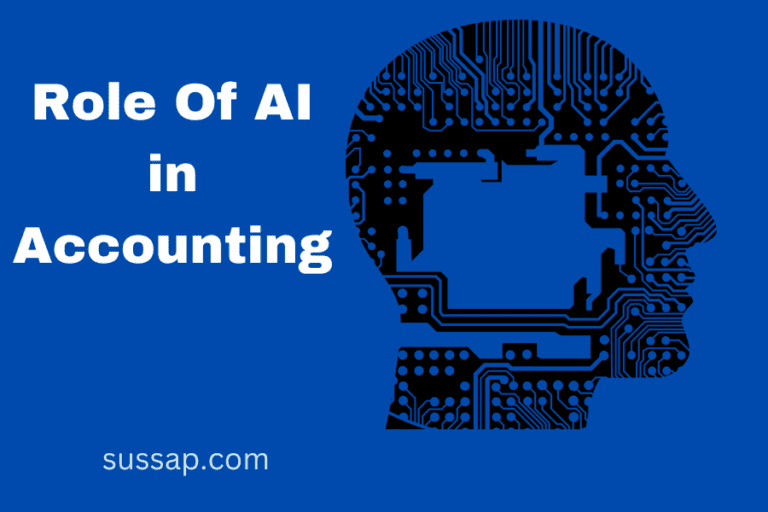Data security in accounting has grown crucial as companies increasingly rely on digital platforms to handle their financial operations. Accounting professionals must give data security measures priority because sensitive financial information is continually at risk of being compromised.
In this article, we’ll examine the significance of data security in accounting and the reasons why it’s so crucial to safeguard financial information online. We will also offer insightful information on the best ways to safeguard accounting data and reduce the possibility of data breaches.

7 Importance of Data Security in Accounting
Regulatory Compliance
Accounting firms should comply with the General Data Protection Regulation (GDPR) and the Health Insurance Portability and Accountability Act (HIPAA). These rules mandate that businesses take steps to safeguard customer data, maintain data accuracy, and guarantee data privacy. Penalties, fines, legal action, and reputational harm may occur from breaking these rules.
To protect people’s personal information and right to privacy within the European Union, the GDPR was developed (EU). Before collecting, processing, or storing an individual’s data, businesses must get that person’s express consent.
HIPAA is a US law that governs the security and privacy of personal health information (PHI). Accounting firms that work with PHI must abide by HIPAA’s privacy and security obligations. It includes upholding administrative, technical, and physical security measures to prevent unauthorized access to, use of, or disclosure of PHI.
The Gramm-Leach-Bliley Act, the Payment Card Industry Data Security Standard (PCI DSS), and other laws might also force accounting companies to follow their regulations. These laws protect sensitive data including credit card numbers and financial information.
Businesses engaged in accounting must implement the necessary data security measures, such as access controls, encryption, and data backups, to abide by these regulations. To identify and reduce potential security concerns, they must also regularly conduct risk assessments and teach their staff data protection best practices.
The company may suffer unfavorable legal, financial, and reputational consequences if these regulations are broken. To keep their operating license and safeguard the data of their clients, accounting firms must adhere to legislation.
Keeping Private Information Safe
Accounting firms are responsible for maintaining extremely sensitive financial data as well as very confidential client information, such as social security and bank account numbers. Data breaches may result in severe consequences including identity theft and financial loss.
Due to the sensitive information that accounting firms handle, including sensitive financial data, personally identifying information, and other sensitive information, data security is crucial in the accounting sector. Customers commonly trust accounting firms with the highest level of security and confidentiality.
Social security information, bank account numbers, tax identification numbers, and other sensitive data must be protected in the privacy of accounting businesses. A lack of effective data protection could result in major consequences like identity theft, financial loss, and legal problems.
Cyberattacks, malware, phishing, human mistake, and other factors can all lead to data breaches. Because accounting businesses own valuable data, cybercriminals frequently target them. A successful data breach can lead to large financial losses, reputational harm, and client loss.
To prevent unauthorized access, use, or disclosure of sensitive data, accounting firms must have adequate data security safeguards. Data encryption, access restrictions, firewalls, and intrusion detection systems are a few examples of such precautions.
The adoption of these steps will lessen the possibility of data breaches, preserving the firm’s reputation and client trust while reducing the risk of legal and financial ramifications.
Building and maintaining client trust
Accounting companies handle sensitive client data such as social security numbers, tax IDs, bank account numbers, and other private information.
Clients trust accounting companies to secure this information, and any breach of that confidence might have serious consequences for both the firm and the client.
A breach of customer confidence may occur when an accounting company does not appropriately protect client data. Such violations can be expensive, both financially and in terms of reputation.
Consumers’ belief in the company’s ability to protect their information may be disrupted, leading to a loss of business and revenue. Additionally, if data privacy laws are not followed, the company could suffer legal consequences or financial penalties, lose its reputation, or both.
To keep their clients’ trust, accounting firms must prioritize data protection. To protect client data, they must use strong security measures such as encryption, access controls, and frequent security audits.
Furthermore, they should ensure that all employees understand the importance of data protection and that their team has obtained the proper data security training.
Accounting businesses should also be upfront with their clients about their data security rules and procedures. Customers must understand the safeguards put in place to protect their data, and businesses must be able to show their dedication to data security.
Client trust can be increased and the firm’s commitment to claiming the highest standards of data security can be demonstrated by providing regular updates and reports on data protection procedures.
Keeping Data Safe
Human error, hacking, and natural calamities such as fires and floods can all cause data loss. Data loss can have serious repercussions, including missed productivity, lost revenue, and reputational harm.
Accounting organizations should put in place suitable data backup and recovery mechanisms to avoid data loss. Routing data backups safeguard data in the case of a system breakdown or disaster.
The amount and type of data handled by the firm and the risks of data loss will influence how frequently backups are conducted.
Another crucial component of data security that can assist in preventing data loss is encryption. The technique of encrypting plain text makes it inaccessible and only accessible to parties with the proper authorization and a decryption key. Data that has been encrypted is more secure and less likely to be lost or stolen.
Accounting firms should have disaster recovery strategies in place along with backups and encryption. In these plans, the procedures for recovering lost data and restoring systems are laid out in the case of a data loss occurrence.
Stopping cyberattacks
Because they store significant financial data, including customer information, bank account numbers, and personal information, accounting firms are desirable targets for cybercriminals.
Spyware, phishing, ransomware, and denial-of-service attacks are just a few forms of cyberattacks that can occur. A successful hack may have far-reaching effects, including monetary loss, reputational harm, legal implications, and even business closure.
Cyberattacks can be avoided with the use of adequate data security measures. Accounting firms might use the following data security procedures to safeguard themselves from online dangers:
Virus protection software and firewalls: Malware entry can be stopped and illegal access can be avoided with the help of firewalls and antivirus software.
Multi-Factor Authentication: By requiring additional authentication procedures, like a fingerprint scan or a text message code, multi-factor authentication adds an extra layer of protection to the login process.
Data can be protected both while it is in transit and at rest by encryption, which renders it unreadable to unauthorized parties.
System updates and patches should be applied regularly to address security flaws that hackers could exploit.
Employee Education: Accounting businesses should instruct their staff members on how to spot and avoid online dangers like phishing scams.
Accounting firms must have an incident response strategy in place in the event of a cyberattack. The strategy should specify how to stop the attack, alert relevant parties, and resume operations.
Keeping the Business Continuity
Business continuity is a company’s ability to continue operations in the face of unexpected events such as data breaches, cyberattacks, natural disasters, or other occurrences that could disrupt regular business.
Business continuity is essential in accounting because clients depend on timely and accurate financial information to make wise decisions.
Operations in businesses can be disrupted and serious financial losses might result from data breaches and other security disasters. For instance, if a business of accountants suffers a data breach, they might need to cease operations while they look into the incident and take corrective action. This disruption may cause lost output, lost money, and reputational harm to the company.
Ample data security measures, on the other hand, can stop or lessen the effects of security incidents, maintaining business continuity. Regular data backups, for instance, can speed up data restoration in the event of a data loss incident, reducing the impact on corporate operations.
Similarly, a corporation can ensure that essential systems and applications are quickly restored in the case of a natural disaster or cyberattack by developing a disaster recovery strategy. It allows resuming normal business operations as soon as possible.
Intellectual property protection
Intellectual property is the creation of companies that are legally protected, such as inventions, designs, and artistic works. Intellectual property in the context of accounting can include the proprietary software, procedures, and methodology that accounting companies create and employ.
Accounting firms must safeguard their intellectual property to maintain a competitive edge over their rivals.
For instance, proprietary software can streamline businesses by automating procedures, boosting productivity, and delivering better customer service. Business and money could be lost if this software were to end up in the hands of rivals or illegal third parties.
Accounting businesses can utilize data security measures to shield their intellectual property from misuse, theft, and unauthorized access.
Access controls, for instance, can be used by businesses to regulate who has access to important information and software. Firms can keep safe from known vulnerabilities with the help of regular software updates and security patches.
How Can Data Security Be Assured in Accounting?
To prevent the theft or exploitation of private financial data, data security is crucial in accounting. These are some strategies for ensuring accounting data security:
Use secure software: Use accounting software that is updated frequently to keep it safe from new threats and is meant to be secure.
Restrict access: Companies should restrict access to those who need it to perform their job obligations. You can accomplish this by establishing user permissions and restricting access to specific files or directories.
Employ secure passwords: Use strong passwords for all of your accounts and keep them up to date. Complex passwords should contain a variety of letters, numbers, and symbols.
Data that has been encrypted is unreadable by unauthorized users. Employ encryption software to safeguard private financial information.
Back up your data frequently to ensure that it is not lost in the event of a system breakdown, theft, or another emergency.
Train your staff: Employees should be trained on data security best practices, such as how to detect and avoid phishing scams and how to report suspicious behavior.
Perform routine audits: To guarantee that financial data is correct and secure, do routine audits. This can assist in identifying any unapproved access or improper usage of financial data.
Conclusion
In conclusion, data security is a crucial accounting component that must not be disregarded. Maintaining the trust and confidence of clients and stakeholders requires protecting financial data and confidential information.
To maintain the safety and integrity of sensitive data, it is more crucial than ever to choose the right accounting software and install strong security measures. This is due to the growing threat of cyberattacks and data breaches.
In the end, putting data security first in accounting shows a commitment to responsible and ethical company operations while also protecting against potential losses and reputational harm.
Also Read:



![9 Actionable Accounting Tips For Small Businesses [In 2023]](https://sussap.com/wp-content/uploads/2023/03/Best-Free-Accounting-Software-2-768x512.png)
![7 Best Accounting Software For Small Business [In 2024]](https://sussap.com/wp-content/uploads/2023/02/Best-Accounting-Software-For-Schools-2-768x512.png)

